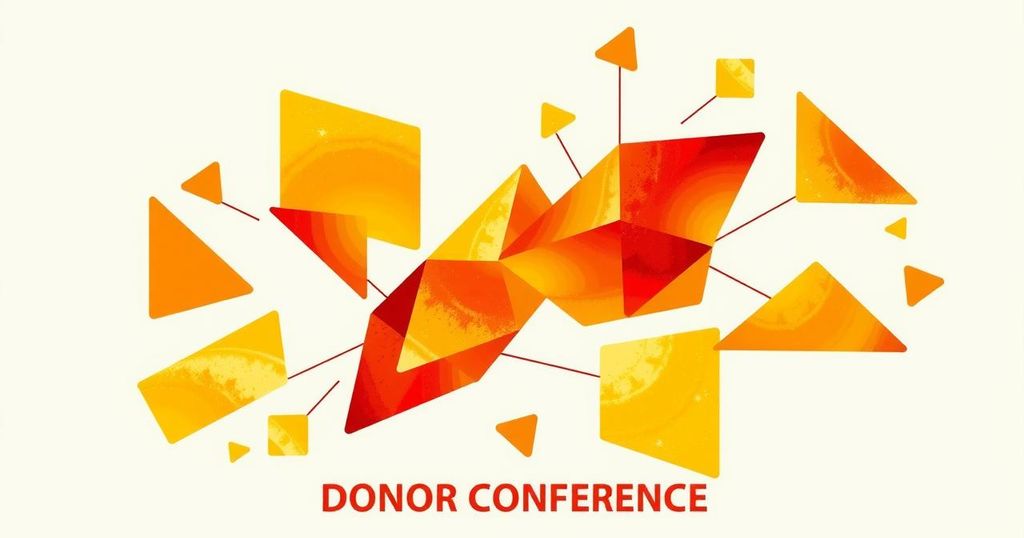Syria Joins Donor Conference for First Time Amid Recovery Efforts

Syria is set to join a donor conference for the first time, focusing on rebuilding after President Bashar Assad’s ousting. The EU hosts this crucial event amid security challenges and significant economic recovery needs. The interim government aims to establish legitimacy and seek aid as the region faces sectarian violence and humanitarian crises.
On March 13, 2025, Syria is set to participate for the first time in a donor conference aimed at garnering support for a peaceful transition following the ousting of President Bashar Assad last December. The European Union is hosting this pivotal event in Brussels, which will see Syrian Foreign Minister Asaad Hassan al-Shibani representing the new interim government. This conference is an opportunity for Syria to establish international legitimacy and seek financial assistance amid a challenging context of previous sanctions and ongoing security issues.
Syria’s new leadership faces significant challenges as they seek to consolidate control over regions that have been fragmented due to over fourteen years of civil war. The reconstruction of the nation is expected to require between $250 billion and $400 billion, according to United Nations estimates. However, the continuation of strict Western sanctions complicates immediate recovery efforts and the interim government’s quest for international aid.
Amid these developments, security in Syria remains precarious. Recent clashes between Syrian security forces and factions loyal to Assad have resulted in sectarian violence, raising concerns for civilians. The European Union has emphasized support for Syria’s sovereignty and unity while remaining cautious about endorsing the new regime if violence continues.
Syria’s interim leaders are striving to maintain authority in the wake of a rapid insurgency led by the Islamist group Hayat Tahrir al-Sham (HTS). Ahmad al-Sharaa, the interim president, has signed a temporary constitution that maintains an Islamist governance model for the transitional phase, causing concern among religious and ethnic minorities wary of further radicalization.
The humanitarian situation is dire, with severe shortages of electricity, safe water, and rampant unemployment affecting daily life for Syrians. Although the United Nations refugee agency reports that millions remain internally displaced, signs of improved access for aid organizations have emerged since Assad’s removal. U.N. humanitarian chief Tom Fletcher expressed optimism at the upcoming conference, signaling potential improvements in coordination with the new authorities.
In summary, Syria’s participation in the donor conference marks a transformative moment for the country as it seeks international support for rebuilding after a prolonged conflict. However, substantial challenges, including security issues and lingering sanctions, must be addressed to foster a stable recovery environment. The outcome of this conference could significantly influence Syria’s path toward reestablishment and normalization within the global community.
Original Source: apnews.com








